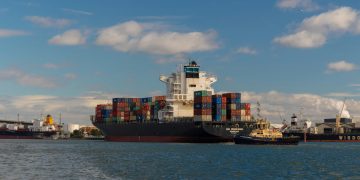The textile and apparel export hub of Tirupur, located near Chennai in Tamil Nadu, India, is experiencing a recovery following a period of production cuts and disruptions caused by a lack of orders.
Industry sources report that many textile units in the region, known as the ‘knitwear capital of India’, have reopened as new orders from global buyers are increasingly directed to India as an alternative to Bangladesh, where supply chains are facing significant difficulties.
According to KM Subramanian, president of the Tirupur Exporters’ Association (TEA), the business climate has improved after a challenging period marked by reduced demand due to excess inventory that was accumulated by buyers in anticipation of prolonged supply chain disruptions during the COVID-19 pandemic.
Subramanian stated that production in Tirupur has now reached nearly 90% of pre-disruption levels, and the region is preparing for a potential increase in demand across the garment sector.
The Tirupur cluster, which includes around 2,000 large factories and 20,000 ancillary units, provides employment to roughly one million people. As global buyers seek alternatives to Bangladesh suppliers, Tirupur’s export units are receiving inquiries from major brands across Europe and the United States. Among the interested European buyers are Primark, Tesco, M&S, Next, and Decathlon, while U.S. companies such as Gap, Walmart, and Costco are also looking at the region.
Subramanian also noted that compliance with mandatory requirements is crucial for securing orders, and he anticipates that Tirupur’s export turnover for the fiscal year 2024-25 will reach $5 billion, up from $3.9 billion the previous year.
Meanwhile, data from the Apparel Export Promotion Council (AEPC) shows that India’s ready-made garment (RMG) exports increased by 10% year-on-year in November. AEPC chairman Sudhir Sekhri attributed this growth to the increasing trust global brands have in Indian-made products, particularly from key markets such as the U.S. and the U.K.
The resurgence in garment exports is also expected to drive higher demand for air freight services from India. This growth is helping to fuel expansions in India’s airline fleet, including a recent 100-aircraft order from Air India. Industry observers believe that these fleet developments will improve air cargo efficiency, supporting further economic growth.
Meanwhile, Bangladesh’s apparel trade, which is a vital part of the country’s economy, is facing challenges due to supply chain issues, political instability, and ethnic tensions. These problems have affected trade relations with India, which had been a close ally under the previous government.
In response to these disruptions, the Maldives has emerged as a temporary air freight alternative for RMG exports to third countries. While the rerouting process faces hurdles, some industry sources report that the shift is gradually gaining momentum.
However, Indian forwarders note that it is difficult for Bangladesh shippers to replace Indian transshipment options with routes through the Maldives, as Dhaka’s air connectivity does not support the necessary volumes. Additionally, factors such as two-way cargo fill rates are important considerations for freighters, and the Maldives’ small market, primarily driven by tourism, presents challenges.
Despite these regional tensions, cross-border cargo from Bangladesh continues to flow through Indian airports, particularly Delhi’s air cargo complex. Furthermore, India’s Customs at Nhava Sheva port has recently updated an order allowing Bangladesh transshipment cargo, highlighting India’s efforts to maintain regional trade cooperation despite ongoing geopolitical issues.
Explore comprehensive supply chain news at The Supply Chain Report. Those interested in international trade can visit ADAMftd.com for free tools.
#ApparelSourcing #SupplyChainChallenges #IndiaTextiles #BangladeshManufacturing #GlobalFashionIndustry















